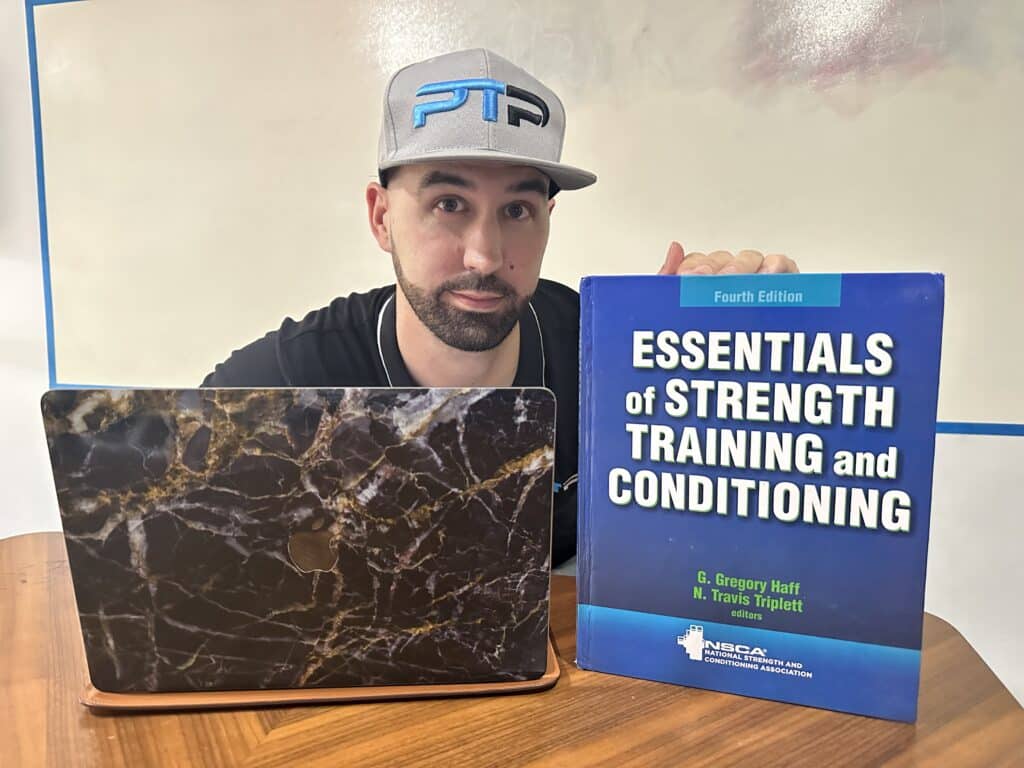
This article overviews my experience earning the NSCA Certified Strength and Conditioning Specialist certification (NSCA-CSCS).
In this review, I break down the following components of the CSCS certification:
- CSCS content coverage
- Certification requirements, costs, and difficulty
- NSCA CSCS pass rate and NSCA CSCS exam difficulty
- Salary and career prospects for CSCS-certified coaches
- Explanation of my expert review process
I’ve personally taken and passed the CSCS exam. I’ve also worked with many other CSCS-certified coaches in the context of gyms and athletic performance. I know how other people’s experiences taking the CSCS went.
By finishing this CSCS review, you’ll be ready to decide if becoming a certified strength and conditioning specialist is the right move for your career.
Cut your Strength and Conditioning Certification study time in half with premium study materials from Trainer Academy for the NSCA CSCS and more.
Use the code PTPJULY to receive between 35% and 50% (depending on the program) off the Trainer Academy MVP Study System. Get the trial for any of their study systems here and check out my review for Trainer Academy here.
If you are overwhelmed by the sheer number of fitness certifications available, I highly recommend you take the quiz to determine the best CPT for your career goals.
Let’s do this!
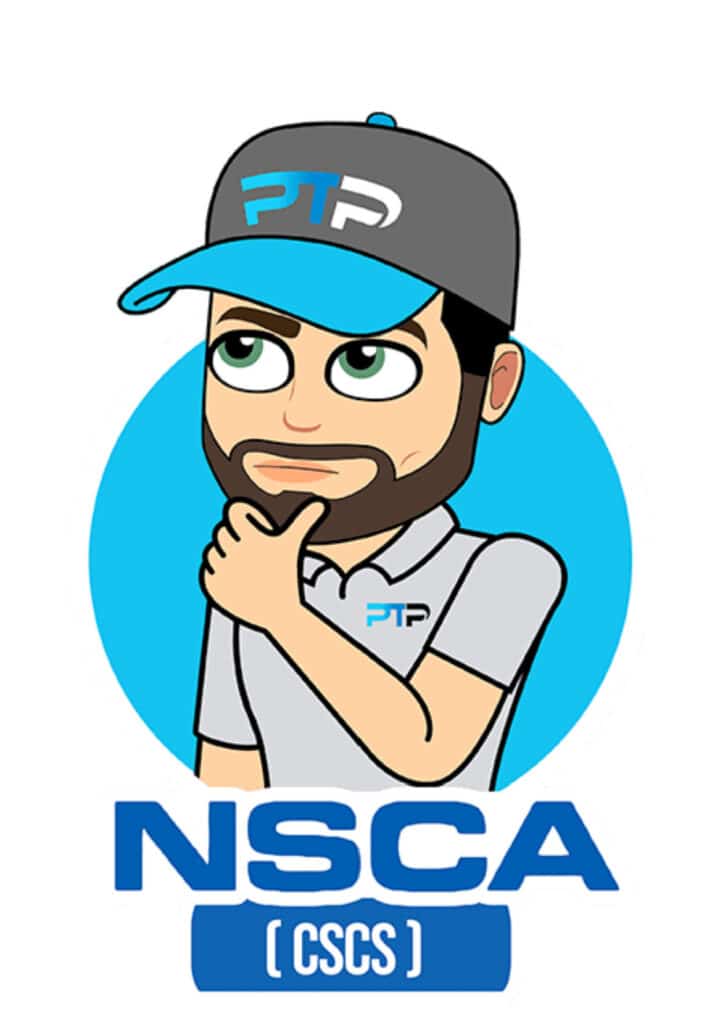
What is the CSCS certification?
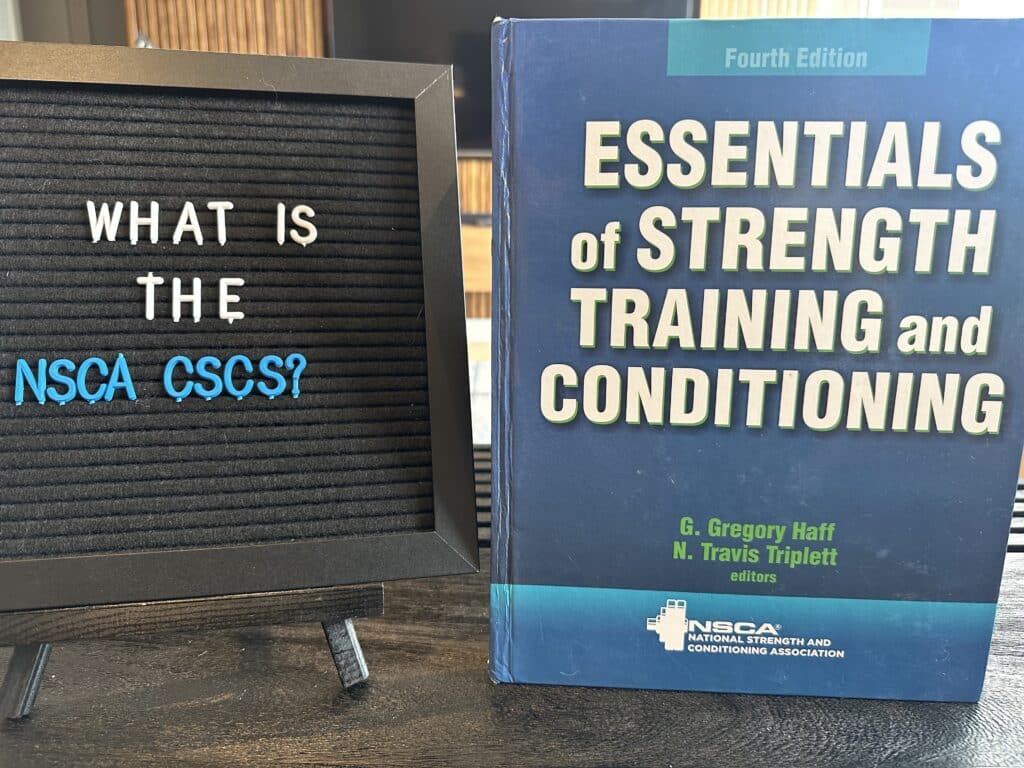
The Certified Strength and Conditioning Specialist certification (CSCS) is among the most respected certifications in the entire industry.
The NSCA has high requirements to sit for the difficult CSCS exam.
I can say from experience that the CSCS is the best strength and conditioning certification.
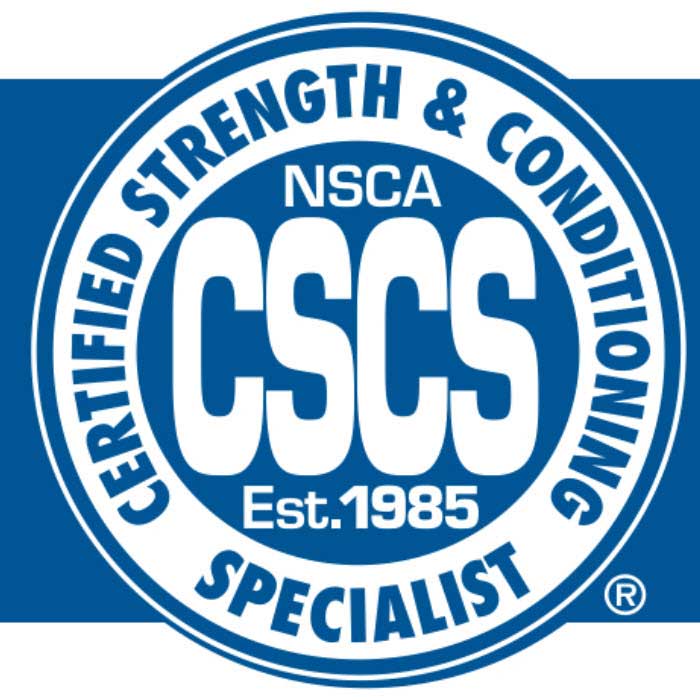
NSCA CSCS General Information
- Exam cost: $470+
- Study material cost: $200-$550
- Prerequisites: Bachelor’s degree, CPR/AED certification from a qualifying provider
- Exam passing score: 70%
- Exam pass rate: 38%
- Average completion time: Approximately 6 months
The NCCA (National Commission for Certifying Agencies) issues accreditation to the CSCS certification. The NCCA is the professional fitness industry standard for certification accreditation. This accreditation further drives home the credibility of the CSCS.
To be clear, the CSCS credential is specifically a strength and conditioning certification tailored toward working with athletes.
As such, I do not personally consider it a candidate for the best personal trainer certifications simply because it is not aimed at general fitness training.
However, the CSCS certification still gives you a leg up on trainers with only a CPT certification. So don’t rule it out just because you want to train general fitness clients.
If you are looking at personal training certifications, I recommend you take the quiz to determine the right personal training certification for your goals.
NSCA credibility and reputation
The National Strength and Conditioning Association (NSCA) is a premier non-profit educational provider focused on improving athletic performance.
NSCA certifications range from sports and tactical performance coaching to personal training.
The NSCA is the best source of no-nonsense scientific strength and conditioning knowledge.
The organization is non-profit and dedicated to research over sales, which is something I appreciate from an integrity perspective.
The CSCS exam itself is NCCA-accredited, meaning subject matter experts have vetted the content.
The NCCA stands for National Commission for Certifying Agencies and is the gold-standard accreditation for certifications both inside and outside the fitness industry.
Most professional strength and conditioning jobs have the CSCS certificate as a requirement for applicants. Passing the CSCS exam is the first major step toward becoming a strength and conditioning coach.
The NSCA is an accredited institution founded in 1978 and is dedicated to advancing the strength and conditioning and overall sports science professions across the globe.
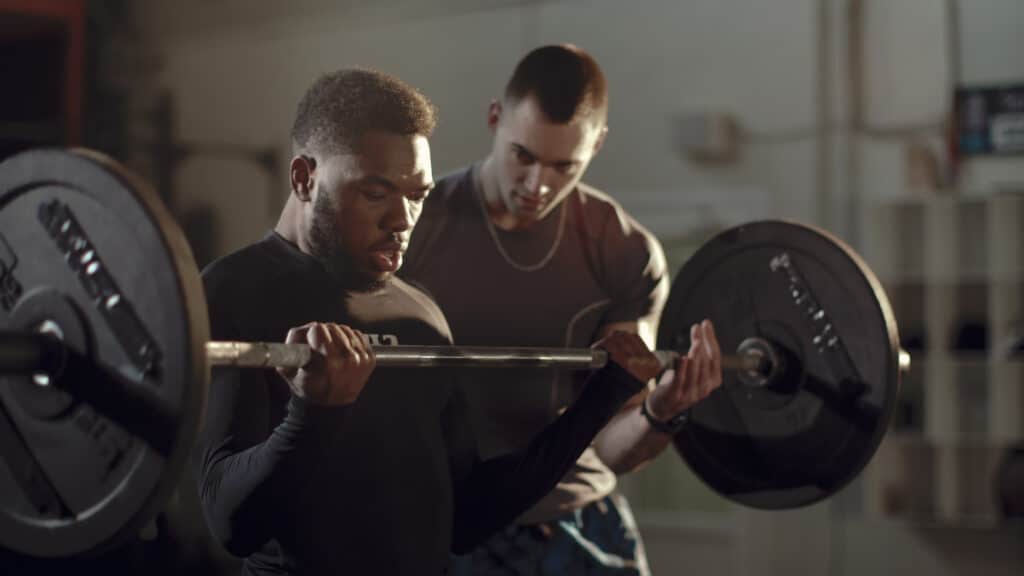
In addition to the certifications themselves, the NSCA conducts a wide range of research across all aspects of strength and conditioning.
The NSCA has a large network of professional coaches globally, with over 60,000 members and certified professionals worldwide.
These professionals drive the strength and conditioning industry as researchers, performance coaches, educators, personal trainers, and related professionals.
I’ve found the network of coaches through the NSCA invaluable for networking and career advancement.
The NSCA is also well known for the NSCA CPT certification, which is targeted toward general personal training and is among the best online personal trainer certifications.
The NSCA name carries weight; it is the most respected organization for strength and conditioning certifications.
Is the CSCS worth it?
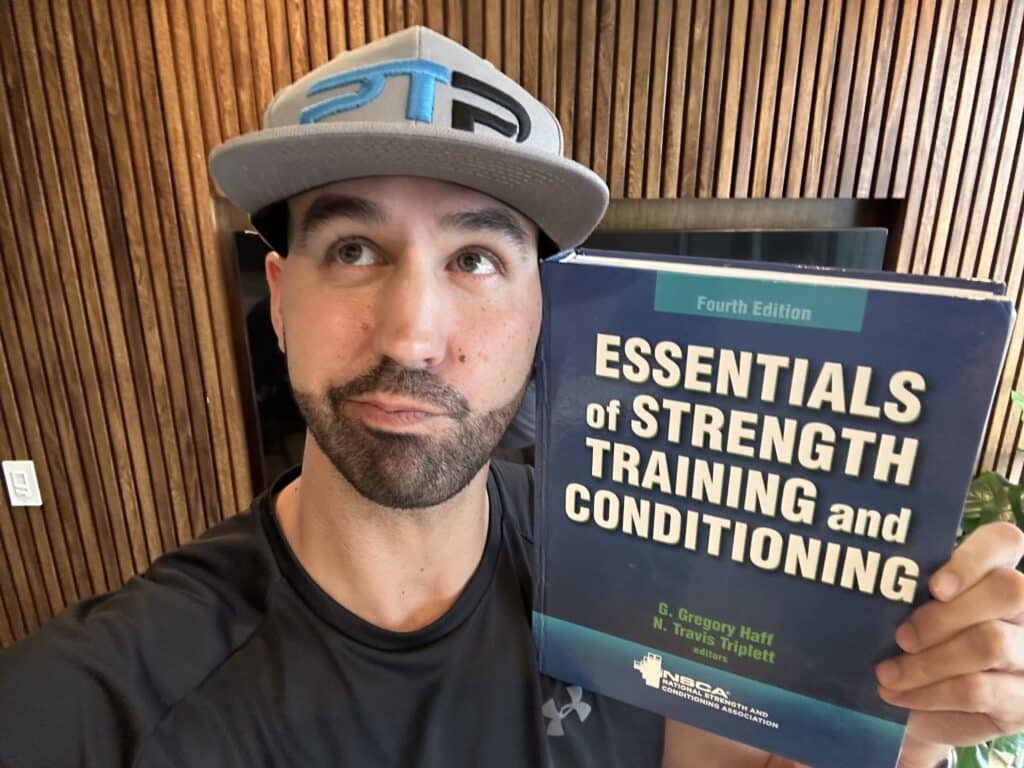
Passing the difficult CSCS exam is worth it if you plan to become a strength and conditioning coach. In fact, it’s effectively a requirement that all strength and conditioning coaches have a CSCS certification.
To put it mildly, even if you do land a job without a CSCS, it may hinder your career.
I’ve seen trainers land amazing strength and conditioning coach jobs without a CSCS. But eventually, their lack of the CSCS ends up hindering their careers.
If you want to train general fitness clients, the CSCS might be a more optional tool.
The CSCS curriculum applies to general fitness clients.
However, the CSCS goes beyond what is necessary for training non-athlete populations. It’s also more difficult than all certified personal trainer certifications.
CSCS certification pros and cons
- World-class exercise technique and program design
- Deep knowledge of exercise science
- Skillset development across all domains of athletic performance
- Heavily respected across the fitness industry
- Lack of corrective exercise programming
- No behavioral change skills
- Very difficult exam relative to general fitness training needs
- High prerequisite requirements
NSCA CSCS vs. other strength and conditioning certifications
The NSCA is the best strength and conditioning certification in the industry.
However, other strength and conditioning specializations are less difficult to obtain but focus on athletic performance. These include:
- NASM Performance Enhancement Specialist (PES)
- ISSA Strength and Conditioning Coach
While these are easier than the CSCS, keep in mind that they do not carry the same weight or credibility.
I do not think that these certifications are worthless, though.
If you want to focus on improving performance in general fitness clients, then the non-CSCS strength and conditioning certifications can be a good option.
Who is the CSCS meant for?
The CSCS is meant for individuals who want a career in strength and conditioning or professionals who want deeper knowledge of the human body from a performance standpoint.
If your goal is to coach athletes or have a career as a strength and conditioning coach, then I recommend the CSCS certification.
The CSCS is beneficial for regular personal trainers as well.
I often find that trainers with both a CPT and CSCS certification have better knowledge of programming, progression, and alternative training modalities.
However, it does not contain corrective exercise or behavioral change for fitness clients, which are very important skills when dealing with the general population.
The exam is also far more difficult than every other CPT exam I have taken, and you have to have a bachelor’s degree or be currently enrolled as a senior in a bachelor degree program to sit for the exam. These factors make CSCS far less accessible. If you want to become a personal trainer and cannot get a CSCS, that’s okay.
In fact, beginning in 2030, the NSCA will require you not only to have a bachelor’s degree, but specifically a bachelor of science from a program approved by the NSCA, which means the program will have specific strength and conditioning components in the curriculum.
- General fitness coaches
- Aspiring personal trainers
- Strength and conditioning coaches
- Group exercise instructors
CSCS certification cost and course options
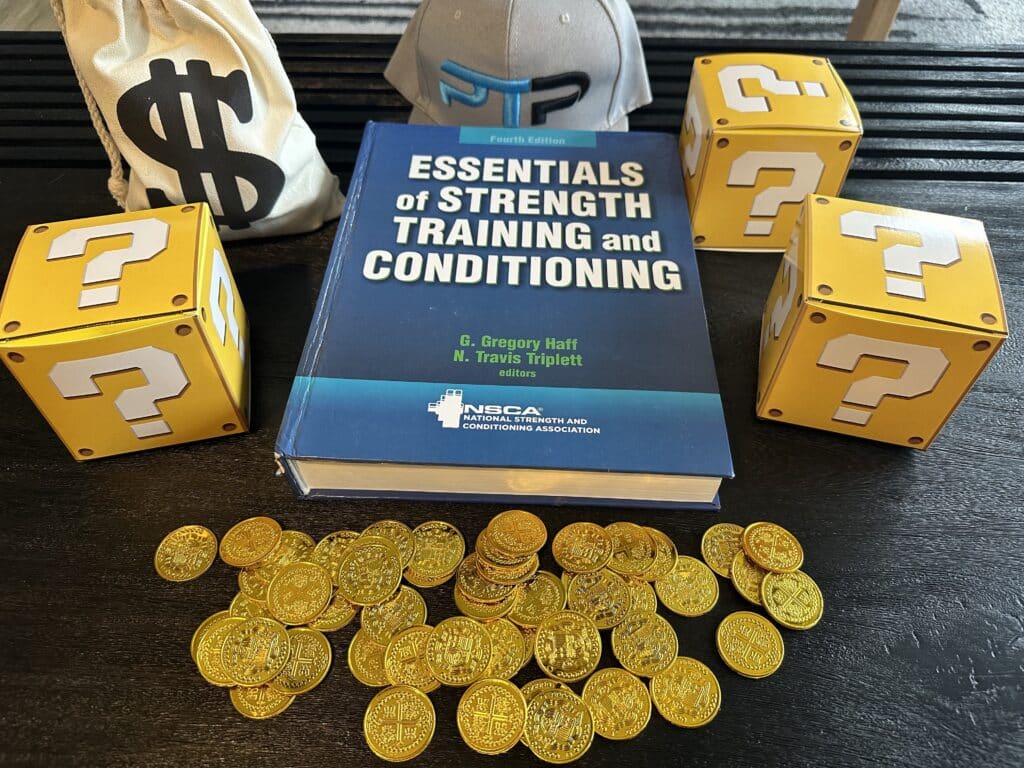
Regardless of whether you purchase a course package from the NSCA, you must pay the exam fee.
The fee for non-members is $475, but an NSCA membership brings that down to $340.
Since an NSCA membership is $130 per year, it’s worth purchasing it in all cases.
There are also cheaper student membership options for current college students. (It’s $70 per year for students).
The NSCA does offer the following study package bundles, which do not include the exam fee:
- CSCS Essentials Package – $249.40 (member), $302.40 (non-member)
- CSCS study guide
- 200 practice questions
- Essentials of Strength Training, 4th edition
- CSCS Essential Plus Package – $463.50 (member), 526.50 (non-member)
- CSCS study guide
- 200 practice questions
- Essentials of Strength Training, 4th Edition, and Online Study Course
- Exercise Technique Manual, 4th Edition
- CSCS Digital Package – $161.50 (member), $215.65 (non-member)
- CSCS Study Guide
- 200 Practice Questions
The NSCA membership also gives you access to the NSCA strength and conditioning journals, which are invaluable resources for personal trainers.
Note that if you fail both sections of the CSCS exam, the retake fee is the same as the initial exam fee.
If you happen to fail just one section, you can retake that section for $250 or $385 for members or non-members, respectively.
If you want to start your CSCS studying before paying for any materials, you can check out my free CSCS study guide and practice test.
I recommend purchasing third-party study materials for a premium study package to prepare you for the CSCS fully.
Purchasing third-party materials also reduces the total cost of your CSCS certification prep.
My PTP students report cutting their CSCS study time and effort in half with Trainer Academy.
Benefit from the Exam Pass Guarantee and Retake Fee Guarantee. Plus, take advantage of my current discount code PTPJULY for 35% off the MVP Program (Ends July 4th, 2025).
Try it out for free here to see if it’s right for you, or read my detailed review for further insights.
This study package offers an excellent combination of price and value.
It includes a full informational study guide, over 1,400 practice questions, and an exam pass guarantee to confidently walk into the exam room.
Of course, if you want to buy the full-priced official NSCA study materials, you are free to do so, but they lack a guarantee for your money back, among other things.
Be sure to check the NSCA website for the latest pricing on their CSCS study materials.
CSCS prerequisites
The requirements to sit for the CSCS exam are the most difficult out of all the certifications I have reviewed.
Like most certifications, you must have a CPR/AED certification from an organization like the Red Cross.
However, the CSCS requires a bachelor’s degree from a University, unlike most CPT certifications that only require a high school diploma.
In 2030, the NSCA will require candidates to have a strength and conditioning degree in an adjacent field, such as exercise science or kinesiology.
Overall, the CSCS prerequisites are:
- Adult CPR and AED certification
- Bachelor’s Degree in any field until 2030
- Bachelor’s Degree in S&C-related field starting in 2030
CSCS certification review – strength & conditioning content coverage
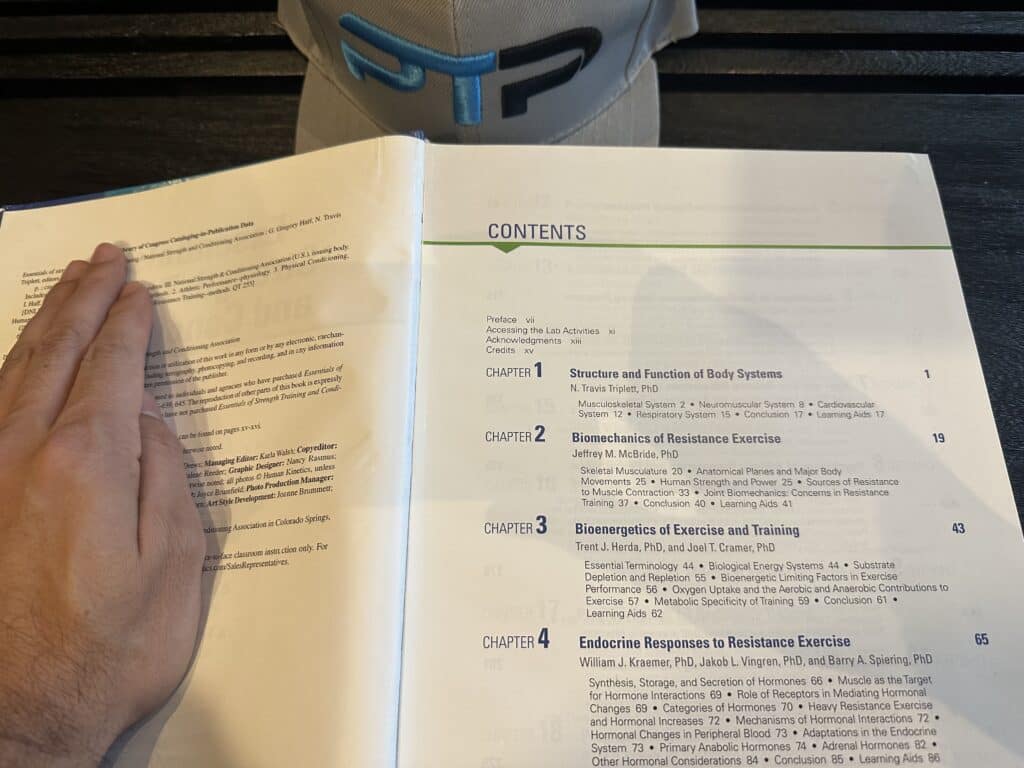
The CSCS strength and conditioning certification content coverage is broad in scope and has a high level of difficulty.
The exam questions come from across the text, with certain subjects weighted more heavily than others.
If you want to start studying the material directly, you can dive right into the free PTPioneer CSCS study guide.
The main CSCS book has a massive section, roughly a third of the entire curriculum, dedicated to exercise science, anatomy, biomechanics, nutrition, and sports psychology.
The rest of the textbook content focuses on practical aspects of improving sports performance, including exercise techniques for resistance training, aerobic training, and programming guidelines for various sports.
In this next section, I’ll take a deeper dive into the coverage of each of these topics in the CSCS curriculum.
Out of the gate, I will say the best and worst part of the CSCS curriculum is how deep it goes on exercise science.
If you pass the CSCS exam, you will have a very strong foundation in the key knowledge points in exercise science.
However, this section of the exam is pretty difficult.
The knowledge is overkill for much of the actual coaching job – but you must know this information to obtain the certification.
Another major downside of the CSCS for regular personal trainers is the lack of client screening and behavioral change coaching.
I’ve rarely met general fitness clients who do not require some form of corrective exercise, which is not part of the CSCS curriculum.
That said, you must supplement your CSCS knowledge with an additional movement assessment and correction exercise skills.
There also is not much discussion of running a personal training business, and certainly no coverage of social media for personal trainers or personal trainer marketing ideas.
If you plan to use the CSCS as a general fitness coach, you must learn additional corrective exercise training and behavioral coaching skills to serve your clients properly.
Additionally, if you want to open your own personal training studio, you will need far more than just a certification.
1. Exercise science foundations
The exercise science coverage in the CSCS is essentially a college degree-level course on the various subtopics of anatomy, bioenergetics, biomechanics, nutrition, and sports psychology.
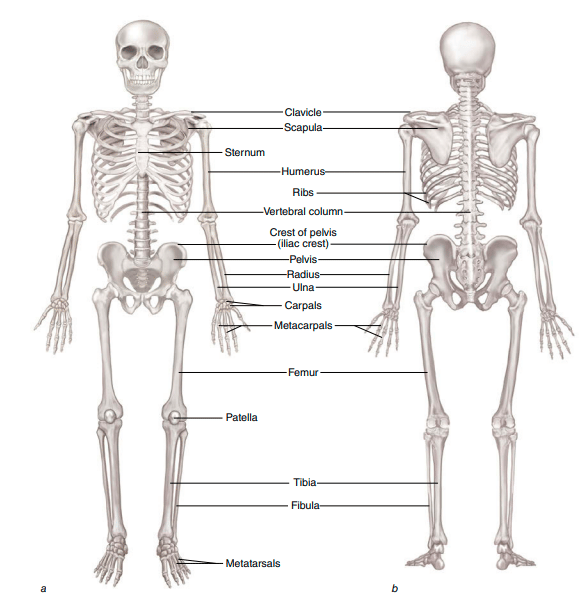
The anatomy section has in-depth breakdowns of the following systems:
- Skeletal system
- Muscular system
- Cardiorespiratory system
- Endocrine system
I highly recommend doing many practice test questions on these topics when taking any CSCS practice exam, as the details on the page get very granular and require excellent memorization skills.
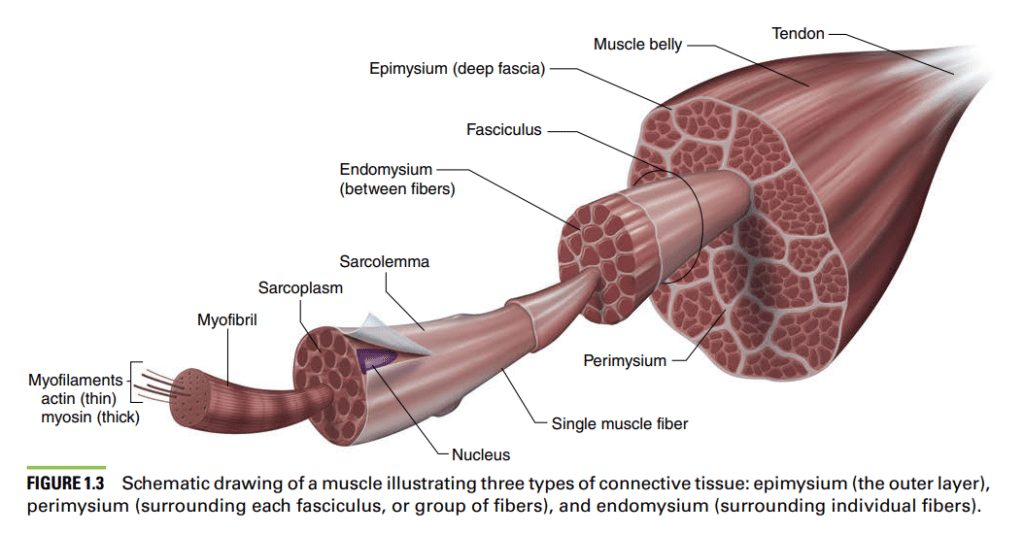
You also learn the phases of muscular contraction and the different phases of heart contraction and respiration.
Another big emphasis is the endocrine system, which is key for strength and conditioning professionals to understand, given its massive role in beneficial performance adaptations.
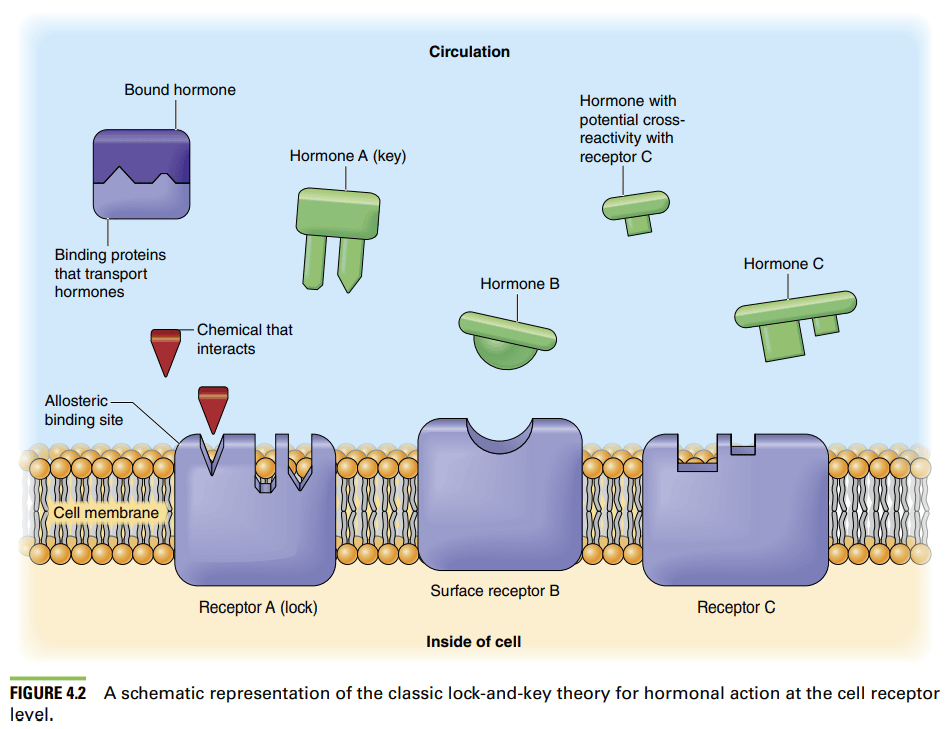
Moving forward, the curriculum covers the adaptations to anaerobic training programs, which is truthfully the biggest focus of most strength and conditioning programs.
The adaptations covered include neurological, muscular, enzyme, and metabolic adaptations associated with anaerobic training.
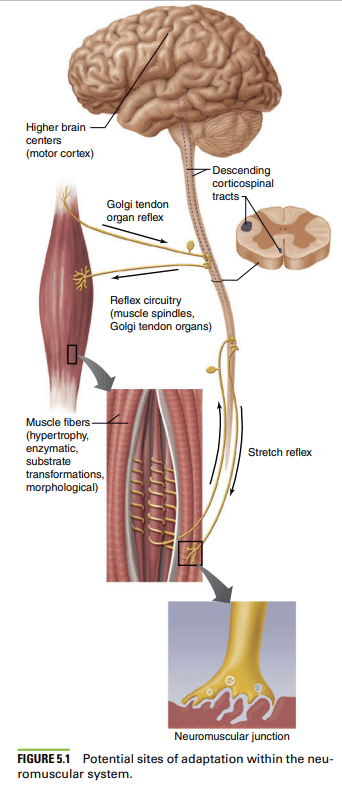
The next area covered in the text is adaptations to aerobic training.
This knowledge is crucial if you plan to coach endurance athletes. It’s also helpful to any personal trainer working to improve sports performance across the board.
The curriculum follows up with coverage of age and sex-related differences in athletic adaptations.
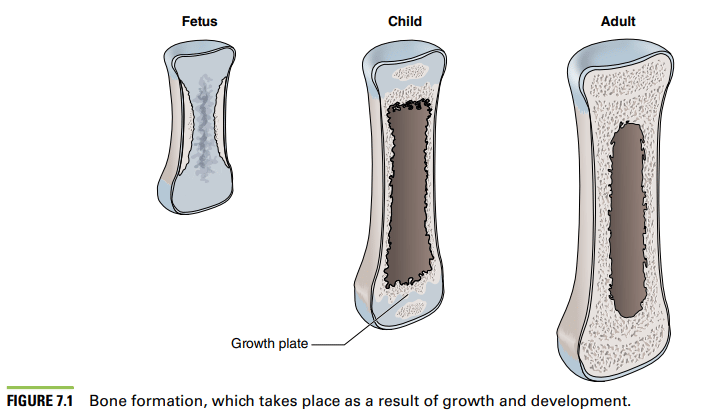
2. Sports Psychology
The CSCS dedicates an entire chapter to sports psychology related to athletic performance.
Most general fitness certifications focus on the psychology of behavioral coaching for general fitness clients to lose weight and improve health.
The CSCS focuses much more on the concepts and coaching techniques that elicit the best psychological states for athletes.
Sport psychology concepts in the CSCS include:
- Arousal, anxiety, and stress
- Drive theory
- Inverted U-theory
- Individual zones of optimal functioning theory
- Catastrophe theory
- Reversal theory
- Types of motivation
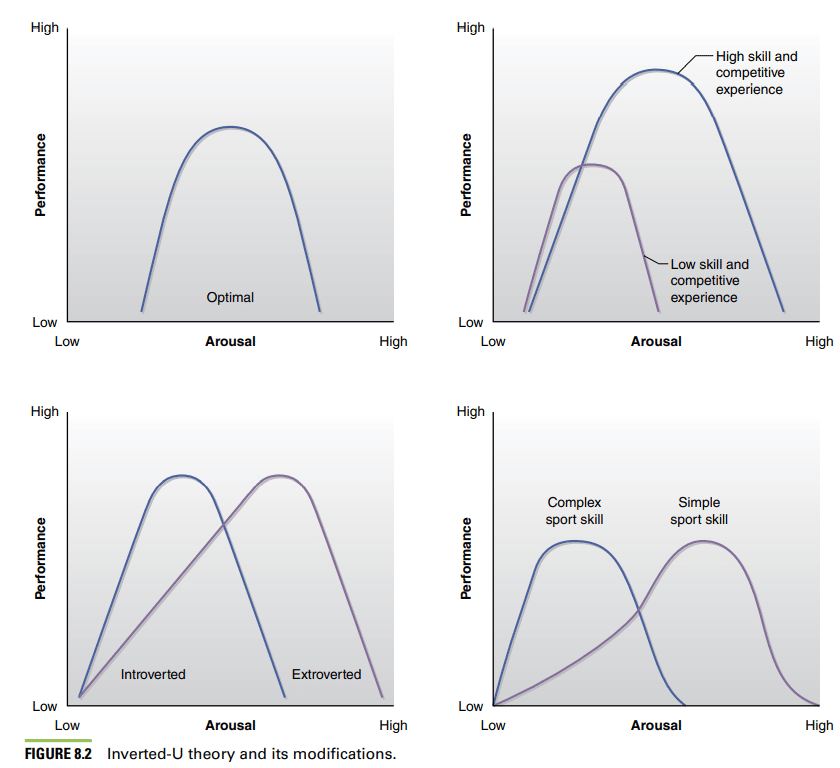
This chapter dives into techniques athletes can use to control elevated arousal and anxiety that may hurt athletic performance.
It also covers methods for effective goal setting in the context of athletic performance.

The CSCS sport psychology section excellently instructs the key concepts you will need to coach your athletes effectively.
3. Nutrition
Nutrition is vital when discussing any aspect of athletic performance or personal fitness training.
The CSCS nutrition is dedicated almost entirely towards maximizing performance.
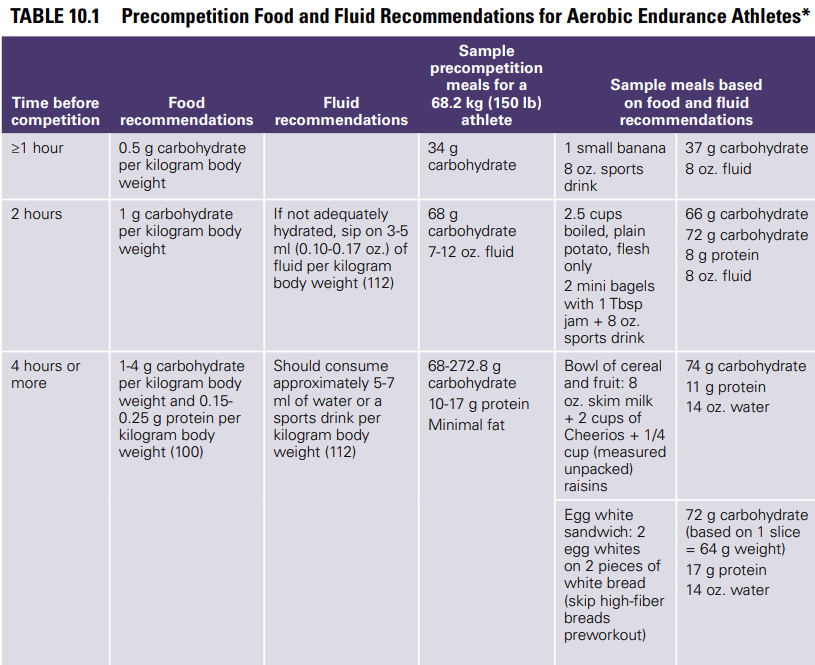
Major CSCS topics on nutrition for performance include:
- Pre-competition nutrition
- In-competition nutrition
- Post-competition nutrition
- Carbohydrate loading
- Meal timing for performance
- Fluid requirements
The curriculum covers the specific nutrition strategies for different types of sports, as the recommendations vary depending on the nature of each sport.
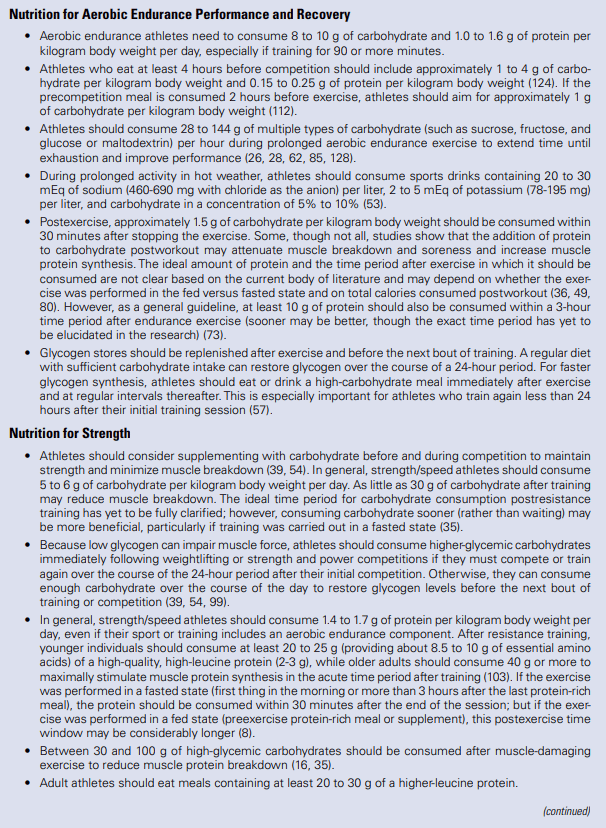
The chapter includes a discussion of nutrition for weight loss and muscle gain.
However, it is far more focused on the basics of caloric deficits, surpluses, and the macronutrient recommendations for these goals.
There is much less emphasis, if any, on the behavioral change strategies needed to help people change their eating patterns.
If you do want to work with fitness clientele on weight loss goals, you will need additional behavioral coaching strategies.
The nutrition section discusses recognizing eating disorders in athletes and referring them to the appropriate provider.
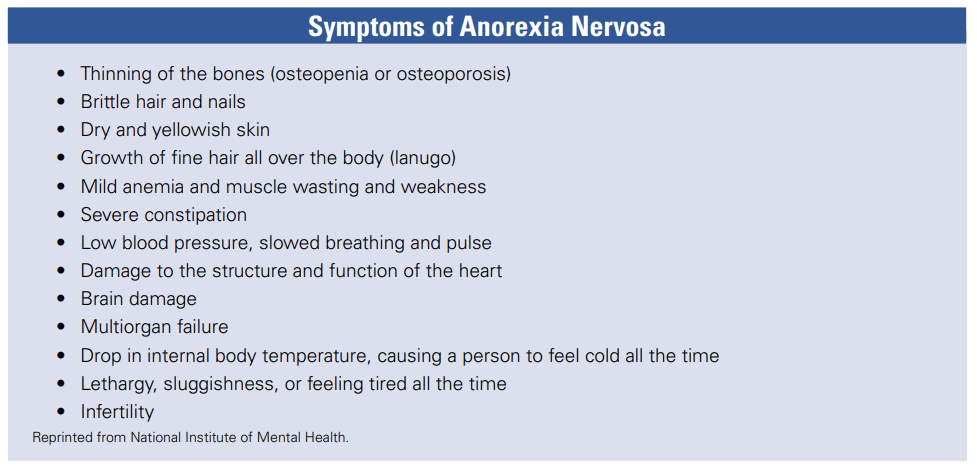
Finally, the CSCS goes over general performance enhancing substances and methods. These include an overall discussion of both legal and illegal substances.
The textbook discusses the legal, widely available, and safe substances’ overall research-backed efficacy and the scientifically studied recommended dosing.
The substances covered include:
- Caffeine
- Creatine
- L-carnitine
- Sodium bicarbonate
- Sodium citrate
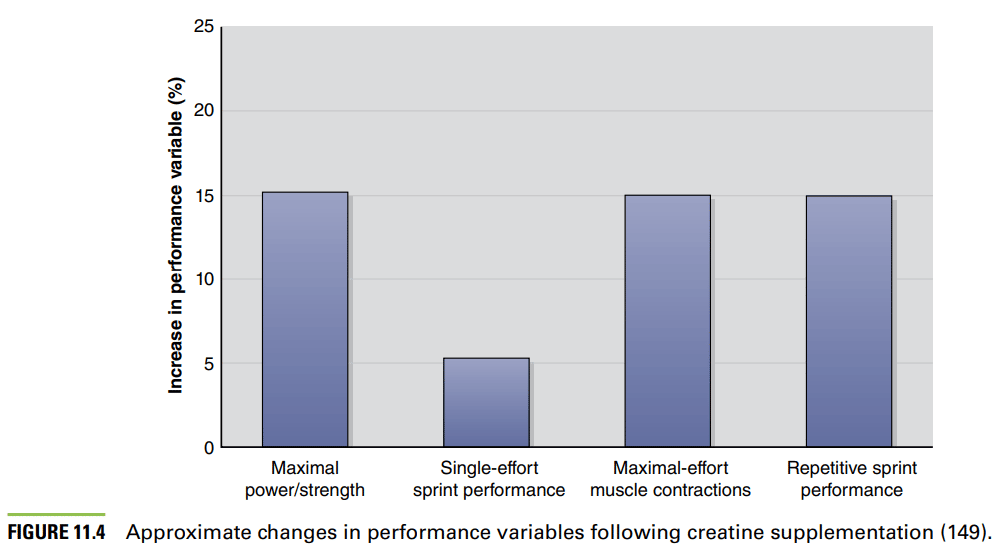
To date, I have not seen the topic of performance-enhancing substances and methods covered at this level in other fitness certifications.
4. Exercise technique
The CSCS covers exercise techniques for the following training types:
- Resistance training
- Flexibility training
- Speed, agility, quickness training
- Aerobic training
- Alternative implement training
The text provides diagrams for many details, including different grip options and the proper spotting methods for various exercises.
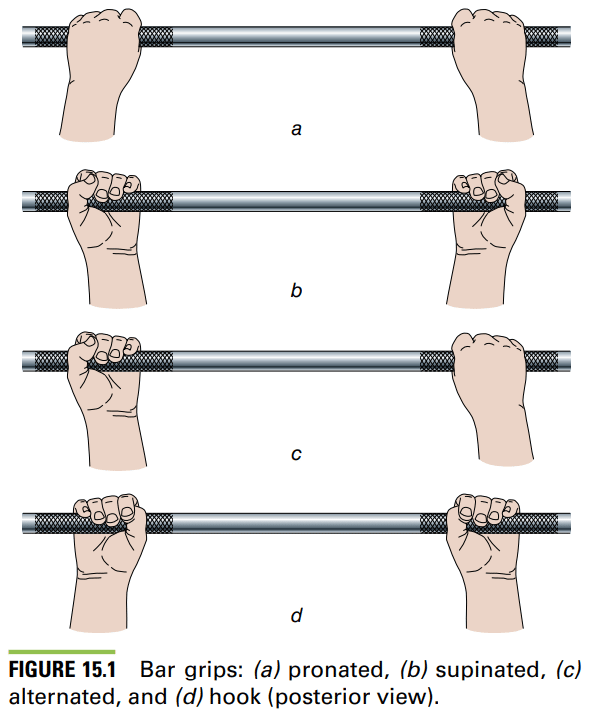
The curriculum includes traditional barbell, dumbbell, and machine resistance exercises.
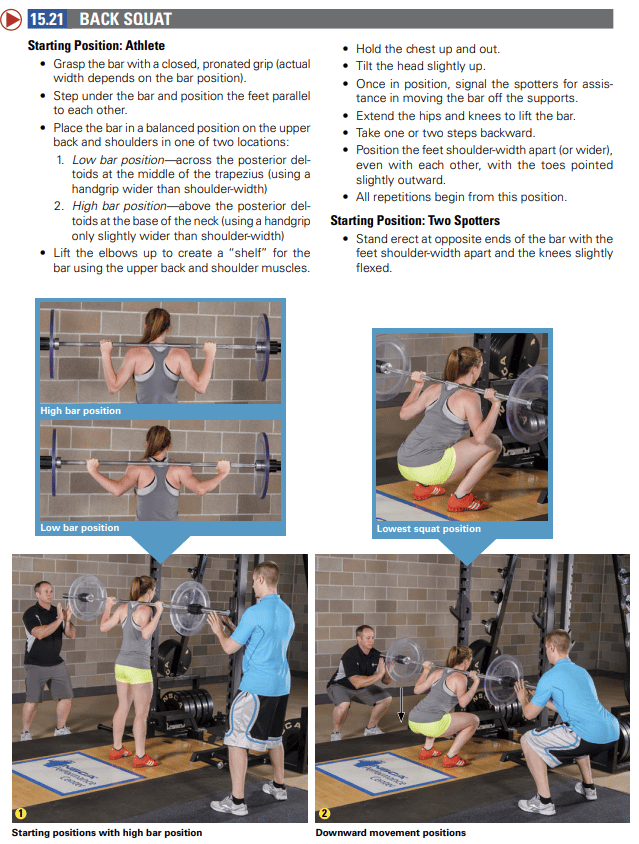
The CSCS has a chapter devoted to non-traditional implement training, including kettlebells, tire flips, log presses, and other unconventional training and lifting methods in addition to the powerlifting strength movements.
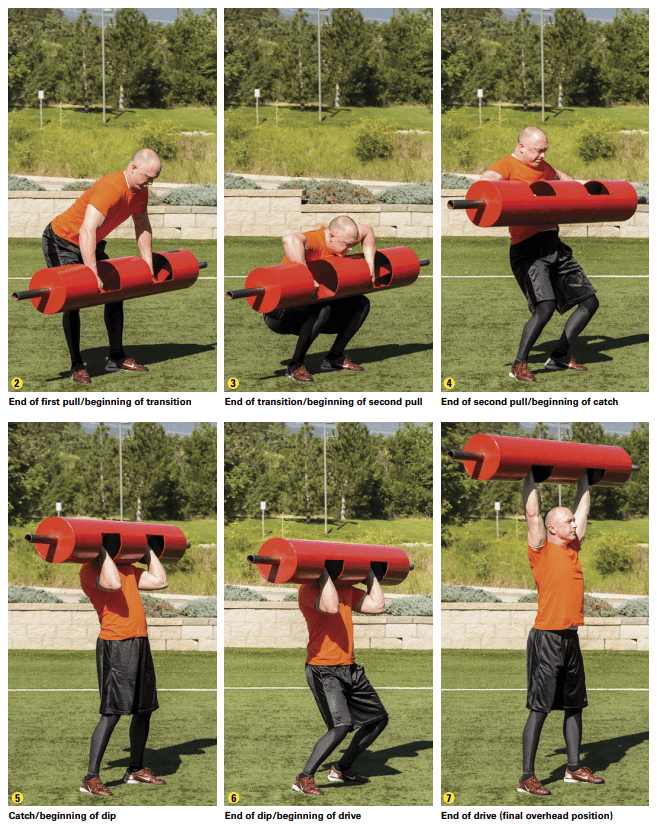
Warm-up and flexibility training receives a whole chapter in the CSCS textbook.
Proper warm ups are vital for maximizing acute performance and reducing injury in training.
Far from a yoga certification, the CSCS flexibility section is about directly improving specific needs in different sports.
The CSCS breaks down warm-ups into general and specific, with the Raise, Activate, and Mobilize, Potentiate (RAMP) protocol forming the basis of recommended warmups.
The curriculum covers the following tools for training flexibility:
- Static stretching
- Dynamic stretching
- Ballistic stretching
- PNF (peripheral neuromuscular facilitation) stretching
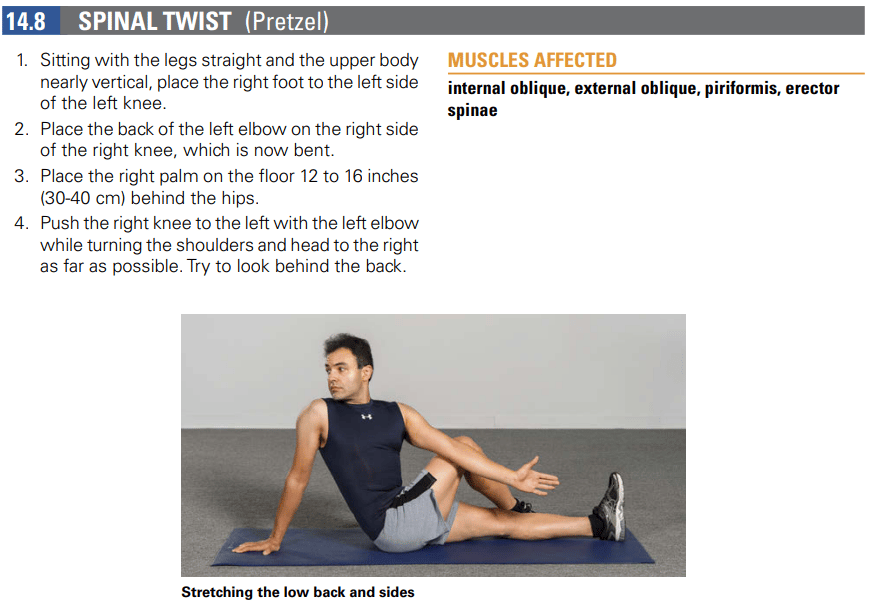
The one thing I think would be helpful would be a section on myofascial release and related techniques for improving range of motion.
If you do a lot of corrective exercise programming with your clients, you must learn about these techniques outside the CSCS curriculum.
The good news is you still learn many dynamic warmups that are great for many different athletes.
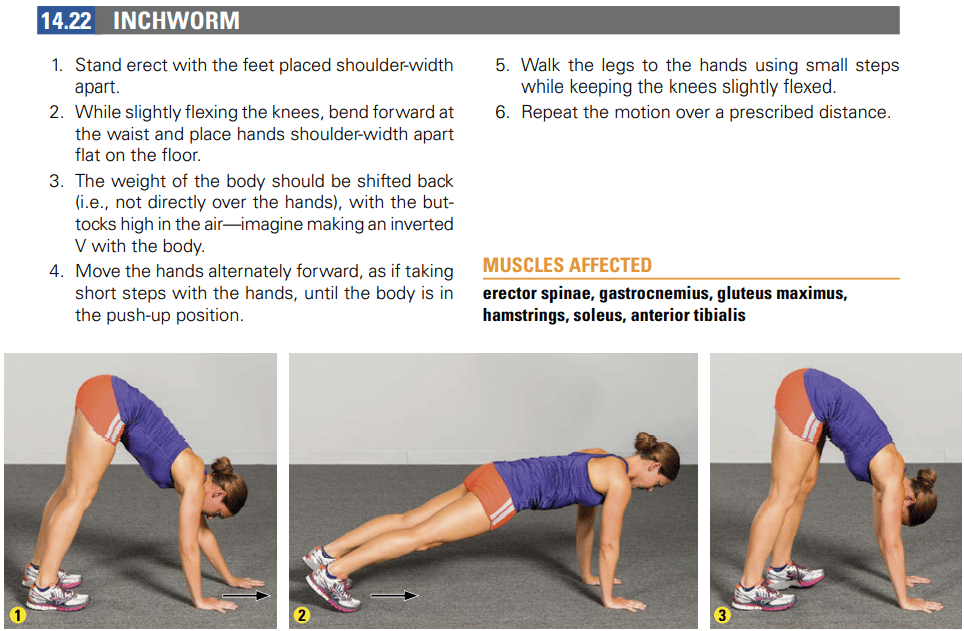
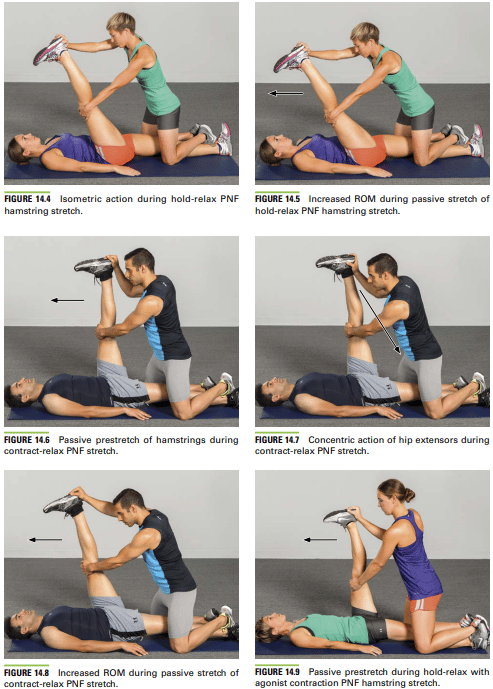
The CSCS also discusses the basic form and technique for commonly used aerobic training equipment.
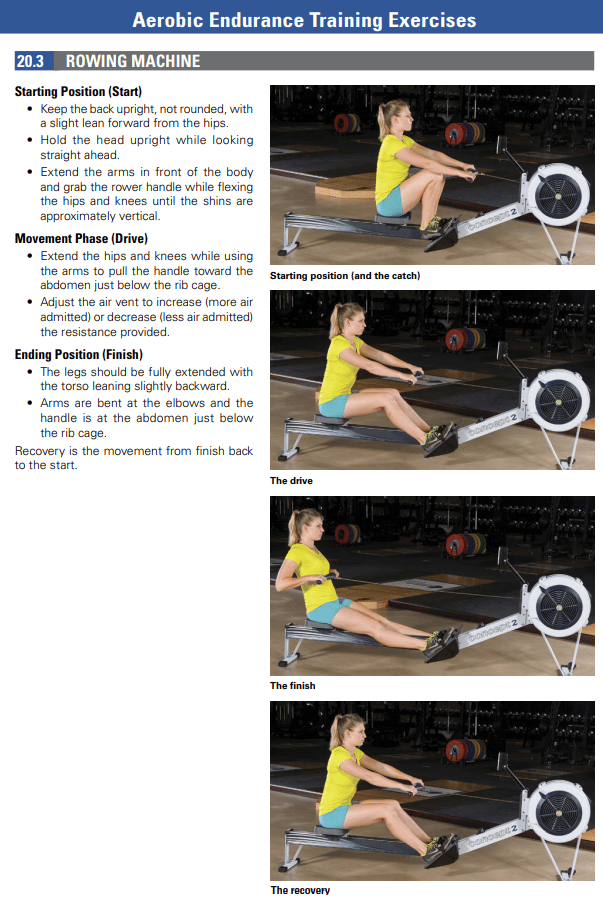
The CSCS covers plyometric training techniques in great detail.
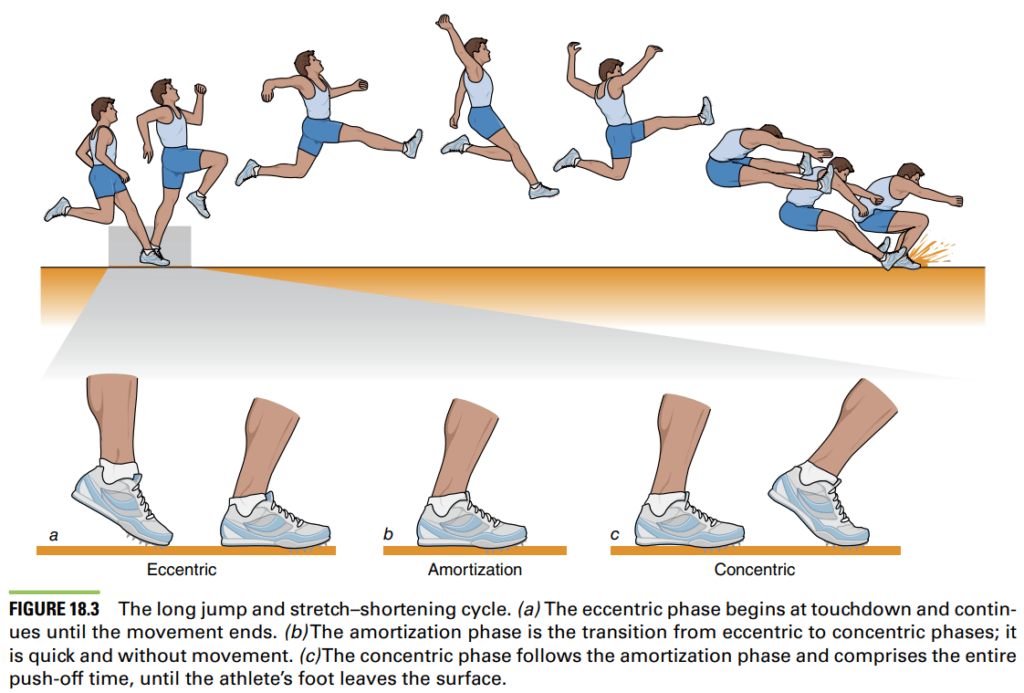
The chapters covering this topic include both the techniques and programming guidelines for training athletes in these disciplines.
Performance coaches use plyometric training to improve explosive performance in speed and agility activities.
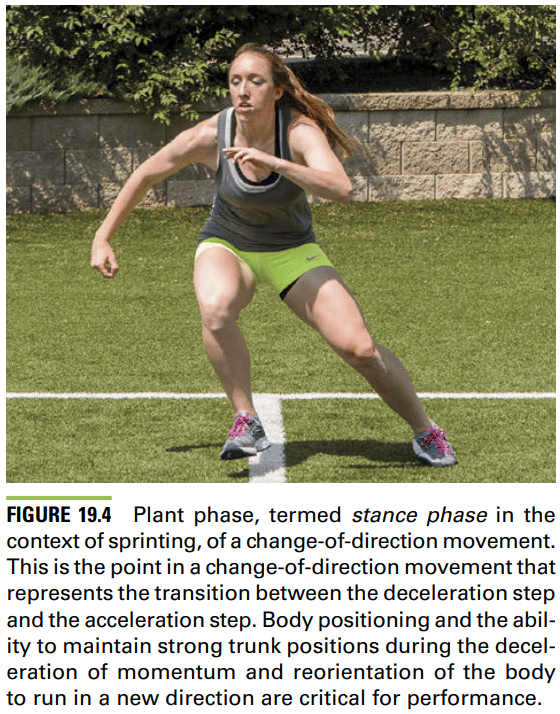
5. Program design
The CSCS covers programming for resistance training in incredible detail.
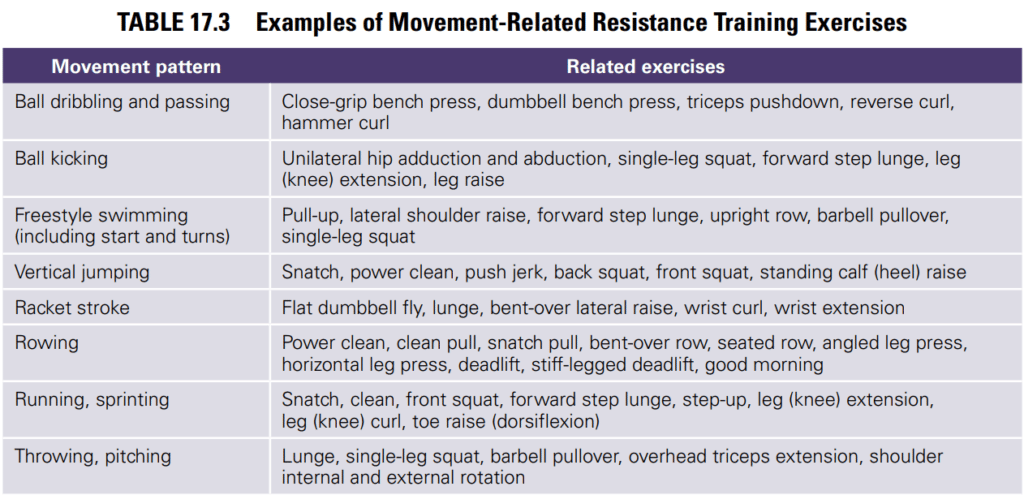
In conjunction with this, you will learn periodization as it applies to sports seasons.
The periodization for athletes traditionally spans the following four seasons:
- Off-season
- Pre-season
- In-season
- Post-season
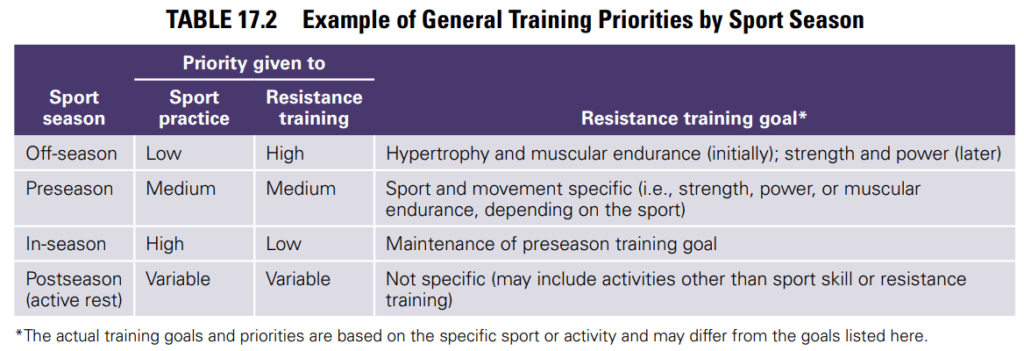
Each season has a different training focus that shifts based on the athletes’ sports practice and competition schedules.
Generally, the off-season has the highest resistance training volume since the athletes are not attending sports practices as often and do not have competitions.
The in-season has the lowest volume but still enough intensity to maintain off-season gains.
Periodization is among the most important concepts to understand as a strength and conditioning coach.
You must memorize and be able to apply this wide range of knowledge.
Aerobic endurance technique and programming is the final area of exercise technique and programming discussed in the CSCS.
The CSCS contains very practical guidelines for aerobic endurance programming.

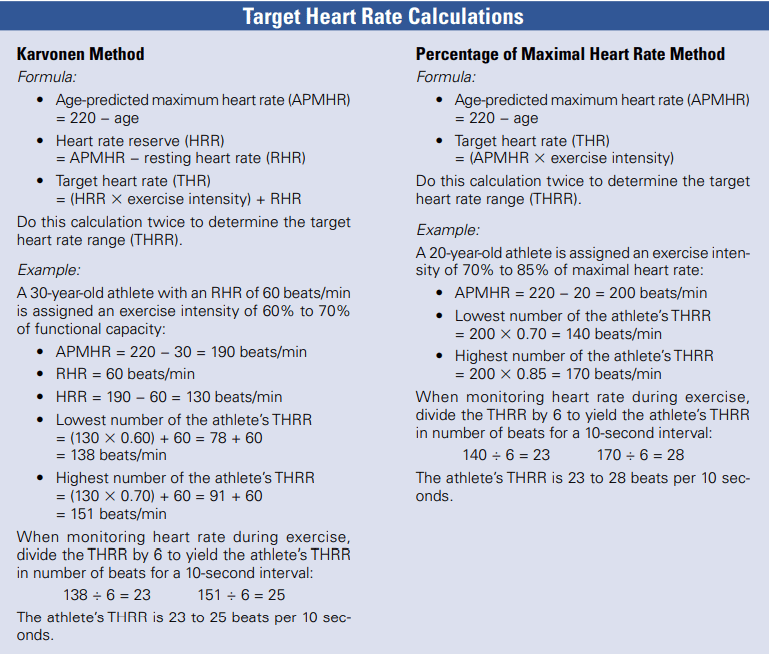
The curriculum includes a breakdown of how you can assign training intensities to your athletes based on various calculations available for heart rate zones.
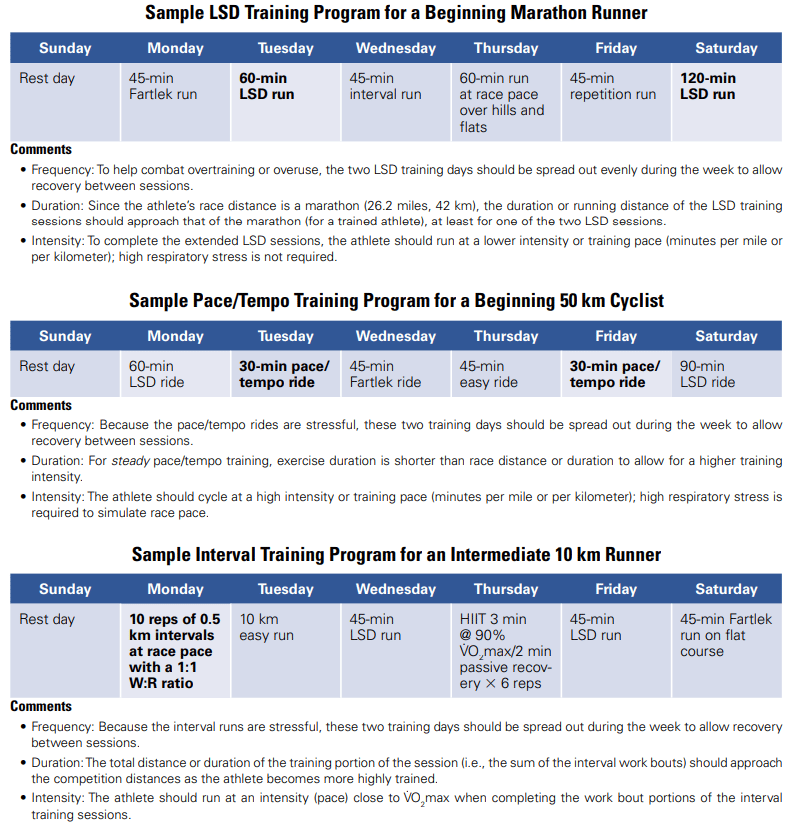
The CSCS also includes several agility drills and programming guidelines for improving agility.
Speed and agility-related skills include:
- Maximal running speed
- Change of direction speed
- Changing direction in response to stimulus – the true meaning of “agility.”
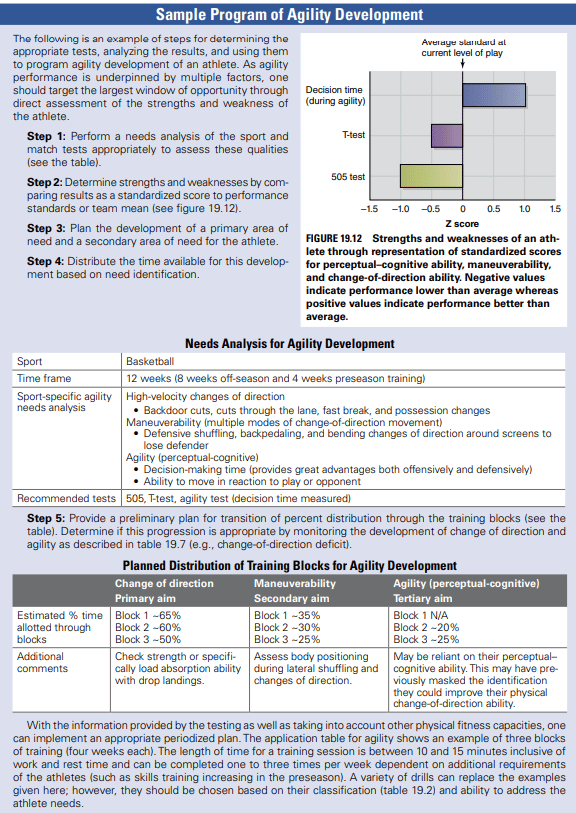
6. Organization and administration
The sixth area of knowledge in the CSCS is facility design, layout, and administration.
This knowledge includes a breakdown of the typical steps for building, opening, and operating a strength and conditioning facility.

The details in this section include explanations of specific spacing for different gym equipment to optimize available floor space.
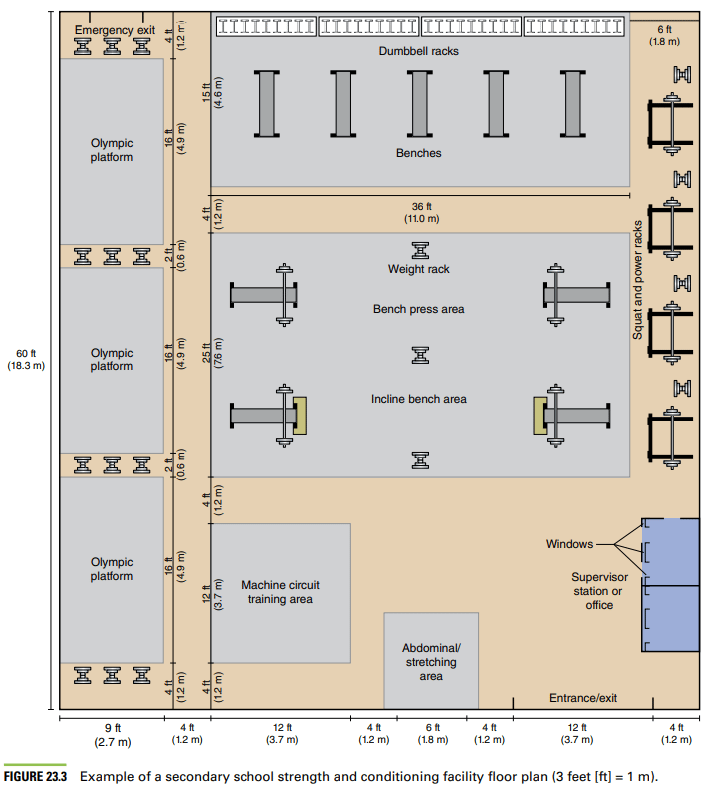
This knowledge domain is an excellent introduction to everything a general strength and conditioning facility needs.
However, opening and operating a facility requires a team with strong leadership, communication, and coordination abilities.
You also need a long-term vision for the goals of the facility.
As such, it is beyond the scope of a single strength and conditioning coach to be responsible for all facility development and operation aspects.
Nevertheless, this section gives you the foundational knowledge to be valuable to any strength and conditioning facility.
7. Testing, ongoing monitoring, and data evaluation
The CSCS contains substantial content devoted to the fundamentals of testing athletes for various performance metrics.
This information includes the theoretical side of analyzing and interpreting data and the practical procedures for conducting specific tests.
Theoretical concepts covered include:
- The types of validity used to assess the quality of a test
- Measures of reliability across tests
- Principles for selecting appropriate tests
- General test administration protocols
The specific test protocols discussed include anthropometric and resting measurements, such as circumference, skinfold, heart rate, and blood pressure.
Next, the CSCS discusses performance tests for various specific athletic traits.
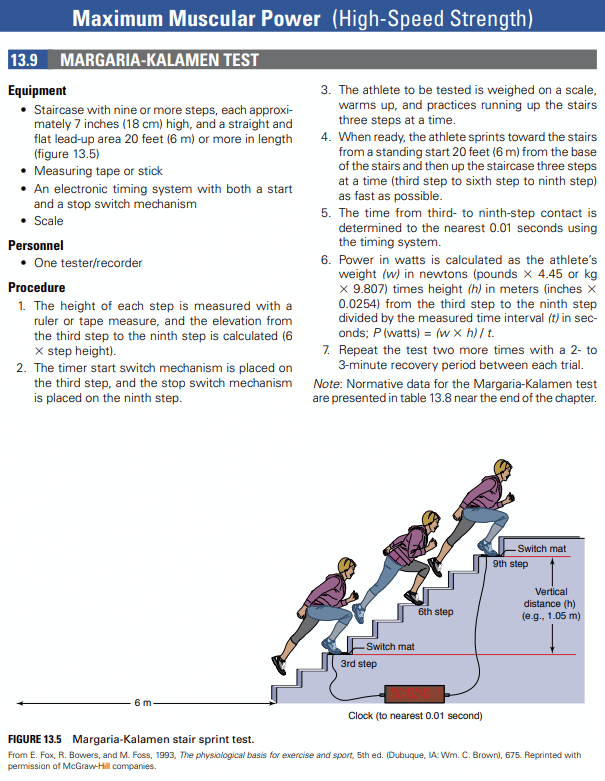
The tests discussed include, but are not limited to:
- 1RM bench, bench pull, back squat, power clean
- Standing long jump, vertical jump, and Margaria-Kalamen tests
- 300-yard shuttle
- YMCA bench press test
- Yo-Yo intermittent recovery test
- T-test, hexagon test, 5-0-5 agility test
- Balance error scoring system, star excursion balance test
Overall, the CSCS section on athletic testing is comprehensive and robust.
How to comprehend each CSCS topic
Comprehending each topic requires you to devote specific time to studying within each domain of the CSCS curriculum.
I recommend focusing on one domain at a time for 1-2 weeks as you study. Track your progress.
Once you have covered each section, use practice tests to determine your weakest sections and allocate you’re continued studying time accordingly.
For the best chance of learning the material, do not try to master all topics simultaneously.
CSCS study materials and exam prep
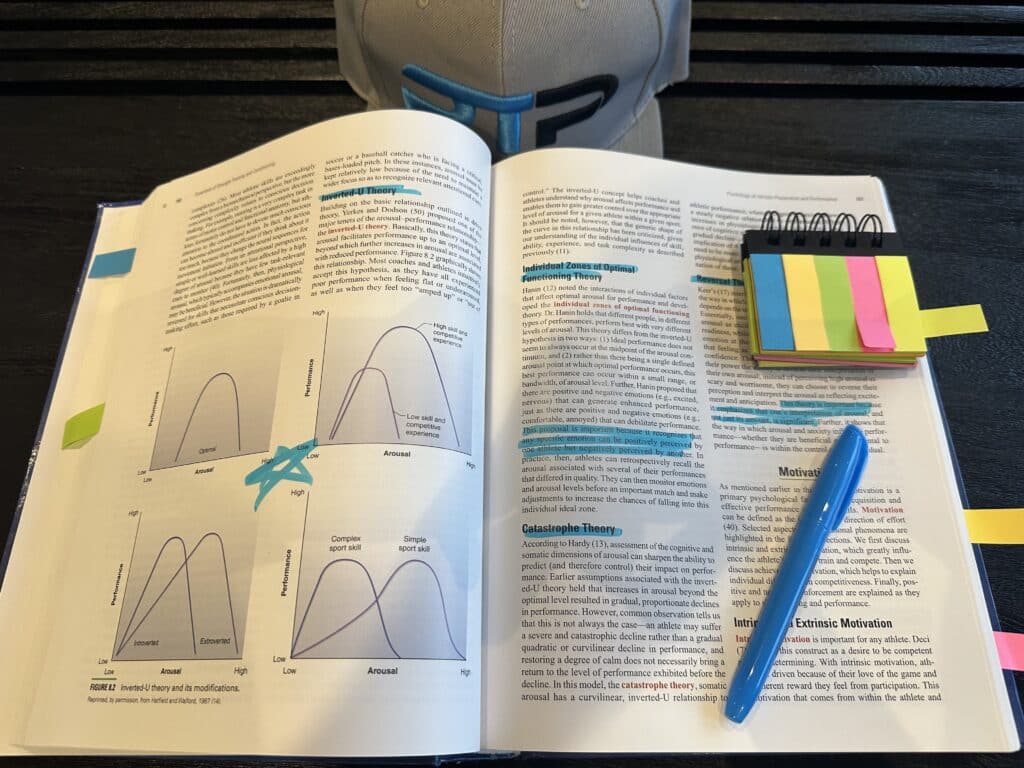
The main textbook contains the in-depth information needed to pass the exam.
However, it is a formidable task to read through and take notes, given the 700+ pages full of densely packed information.
Without a CSCS exam study guide, the textbook is fairly overwhelming.
Supplementary support resources for the CSCS include the NSCA Exercise Technique Manual for Resistance Training, 4th Edition.
The technique manual contains over 70 exercises with full descriptions, photos, and video demonstrations.
The Essentials of Strength and Conditioning textbook also contains exercise examples with photo descriptions.
However, the total number of exercises is much lower and does not include videos.
As I mentioned earlier, you can purchase various study materials from the NSCA for a separate cost. However, they do not include any live clinics or video lessons.
On account of this, I have found these only marginally useful in the context of exam preparation.
Before diving into your exam prep, one helpful tip is to take the CSCS practice exam free on PTPioneer, which I highly recommend.
The more you practice the CSCS test questions you see, the better prepared you will be for the real CSCS exam questions.
Taking the CSCS exam
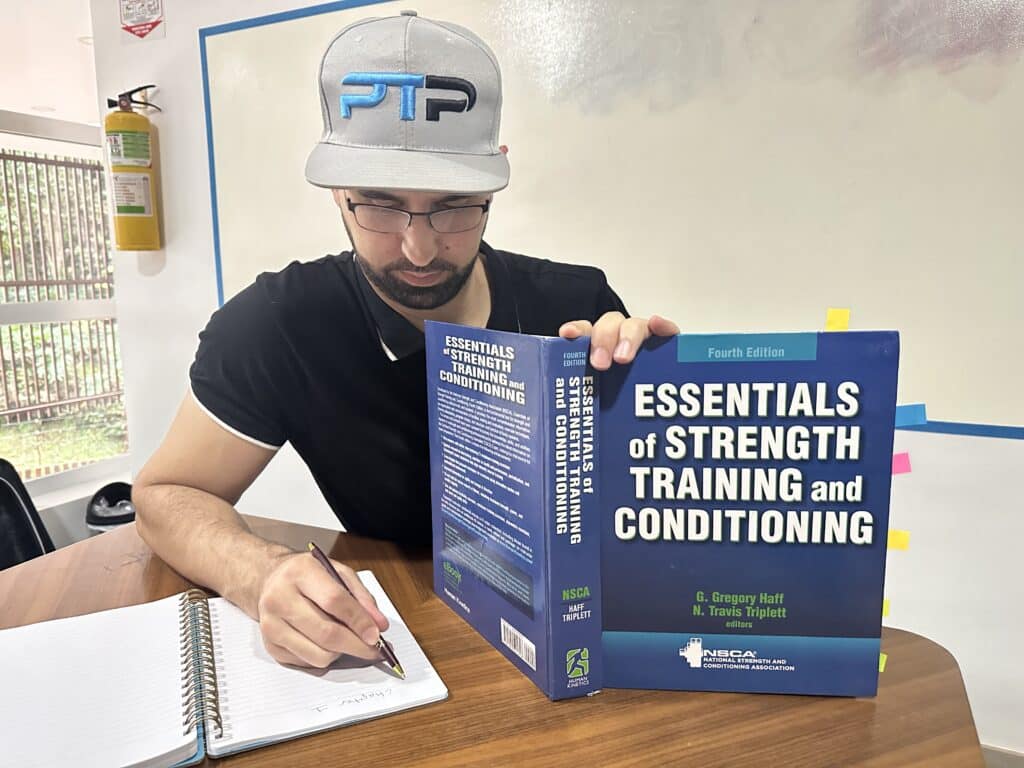
The CSCS exam is among the industry’s most difficult fitness certification exams. With a roughly 54 percent first-time CSCS pass rate, about half of the students attempting the CSCS fail on their first try.
How to pass the CSCS Certification Exam
The best way to pass the CSCS exam is to break each section down and focus on each of the areas for 1-2 weeks. Following a solid CSCS study guide can streamline your efforts and make things more efficient.
How is the CSCS Exam Scored?
The CSCS exam consists of two sections.
The first section covers scientific foundations and consists of 95 multiple-choice questions you must answer within 1.5 hours.
The domains in the Scientific Foundations section include:
- Exercise science – 44 questions
- Sport psychology – 19 questions
- Nutrition – 17 questions
- Non-scored experimental questions – 15
You must receive a passing score of 70 percent correct answers within each domain to pass the section. Your final score will not matter if you receive less than 70 percent within that domain.
This scoring makes the exam much harder because you cannot rely on being great at one knowledge area to compensate for weakness in another.
You must know each domain well enough to pass it on its own.
After a short break, you will take the second section of the CSCS exam, which is the “Practical/Applied” section.
This section includes 125 questions you must answer within 2.5 hours. Roughly 30 to 40 of the questions will involve watching a video demonstration and providing feedback (still multiple choice), so the exam is very comprehensive.
The Practical/Applied section tests the following domains:
- Exercise technique – 40 questions
- Program design – 38 questions
- Organization and administration – 12 questions
- Testing and evaluation – 20 questions
- Non-scored questions – 15 questions
You must receive a 70 percent passing score within each domain for success on the exam, regardless of your final exam score.
If you have no background in exercise science, expect to spend upwards of 6 months or longer preparing for your CSCS exam, pouring over each possible question. This approach means you won’t have to pay to retake portions of the test.
Any additional knowledge you have, such as an exercise science degree or other personal training certification, can reduce the time you need to prepare.
Registration and test day tips
While the CSCS exam is very difficult, it is well worth getting certified to put the CSCS certification in your personal trainer bio.
It is also a major step to a successful strength and conditioning coach career.
CSCS salary and career prospects
The CSCS is generally required for any professional strength and conditioning coach. Generally speaking, jobs for CSCS certification revolve around improving performance among athletes of a given skill level.
Salary-wise, CSCS-certified coaches tend to make slightly more than your average certified personal trainer for a given experience level.
Strength and conditioning jobs range from $25,000 a year at the low end to upwards of $76,000 on the higher end. According to the official 2022 NSCA Salary Survey, “average salaries range from $60,527-$84,575” and “variables such as location, education, certifications, experience, and sector each influence one’s earning power.”
Note that strength and conditioning coaches for professional sports teams will earn substantially more than that.
However, it will take years of additional experience before you can work with professional sports teams in a leading strength and conditioning role.
CSCS continuing education
In line with the advanced difficulty of the CSCS is a fairly stringent CEU (continuing education units) requirement.
You must complete 6.0 CEUs every 3 years.
You can complete some of these CEUs through the NSCA or other approved providers. However, you need to get CEU credits across multiple categories.
The categories of CSCS CEUs are as follows:
- Category A – attending events – maximum of 2.5 CEUs per reporting period
- Category B – Sharing your expertise – maximum of 3.5 CEUs per reporting period
- Category C – Educational Activities – Maximum of 6.0 CEUs per reporting period
- Category D – NSCA Quizzes and Assessments – Maximum of 3.5 CEUs per reporting period
Be aware that you must take CEUs from at least two different categories. As such, despite the “maximum” for category C being 6.0 CEUs, you cannot complete all your CEUs via category C activities.
Unlike other CPT certifications, to recertify through the NSCA, you will have to perform more than just an additional online course.
Attending conferences either via virtual video or in person is a good way to get CEUs in conjunction with performing coursework.
Ideally, you should tailor your CEU courses toward your long-term goals in the fitness industry.
CSCS Overall Rating
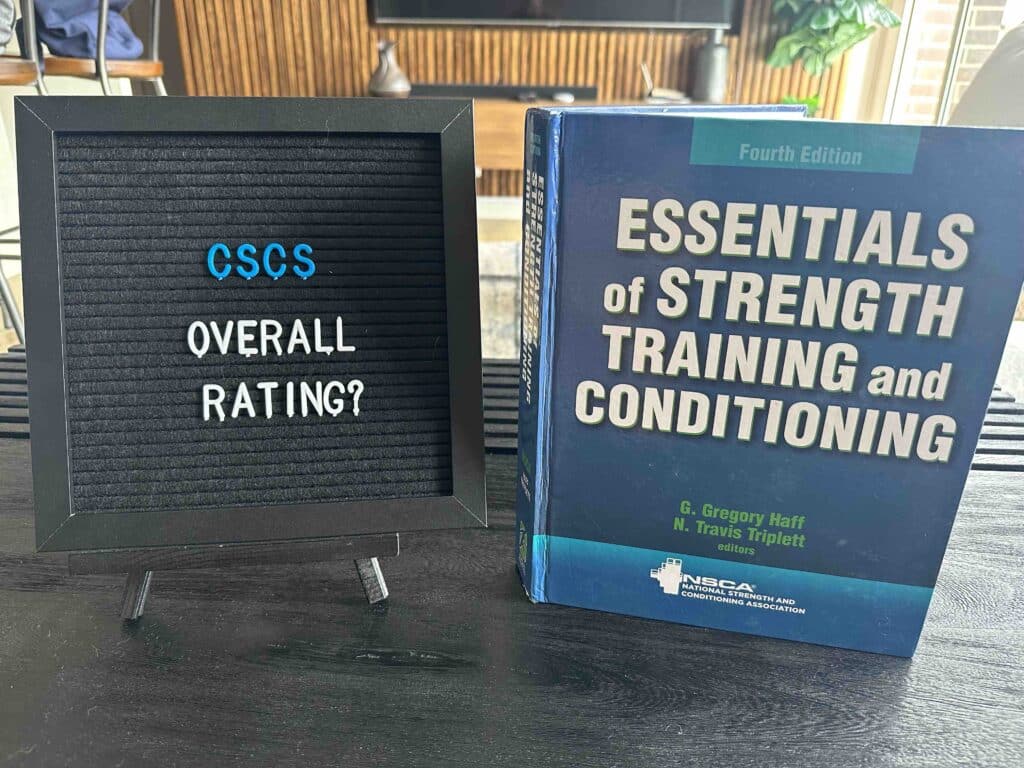
[rank_math_rich_snippet id=”s-e350c063-9024-4660-8ee1-ec25a89a51de”]
In terms of overall certification, the CSCS scores 4.5/5 for the reasons above.
It offers incredible scientific knowledge, practical exercise techniques, and programming. In terms of general personal training, the CSCS is lacking in behavioral change and corrective exercise. However, the focus is first and foremost on improving performance in athletes, which it certainly accomplishes.
CSCS Certification (Frequently Asked Questions) FAQs
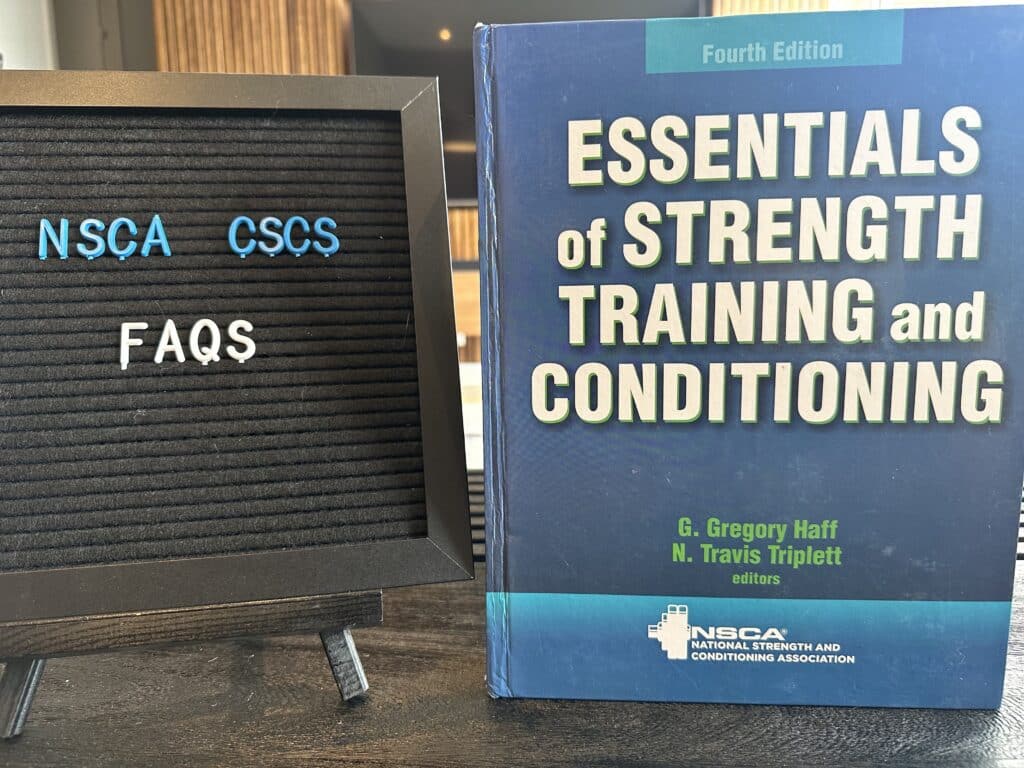
How do you qualify to get the CSCS certification?
What can you do with a CSCS?
How much can you make with a CSCS?
What is the difference between a CSCS and a CPT?
What if I fail the CSCS test?
How long does it take to get a CSCS?
Do you need a degree to be a CSCS?
How long should I study for the CSCS exam?
Is the CSCS respected?
Why is a CSCS important?
Is the CSCS certification worth it?
References
- National Strength and Conditioning Association: CSCS Exam Prerequisites. https://www.nsca.com/certification/cscs/cscs-exam-prerequisites/
- National Strength and Conditioning Association: CSCS. https://www.nsca.com/certification/cscs/
- National Strength and Conditioning Association: Membership Overview. https://www.nsca.com/membership/membership-overview/
- National Strength and Conditioning Association: HOW TO PREPARE FOR THE CSCS EXAM. https://www.nsca.com/cscs-exam-preparation/
- National Strength and Conditioning Association: CSCS EXAM STUDY MATERIALS. https://www.nsca.com/cscs-study-materials/
- National Strength and Conditioning Association: STRENGTH AND CONDITIONING COACH SALARY. https://www.nsca.com/salary-survey/
CSCS certification video review
Podcast for those on the go
The CSCS certification is among the most respected in the fitness industry– for a good reason.
The exam is fairly difficult compared to virtually every other mainstream fitness certification.
Furthermore, the scope of knowledge regarding exercise science and programming for different sports is well-and-above the typical content found in certified personal training curricula.
Nevertheless, if you want to become a strength and conditioning coach, you must absolutely pursue the CSCS certification.
As mentioned, I highly recommend looking into third-party CSCS exam prep, such as the Trainer Academy CSCS MVP Study Course.
This is especially the case for the CSCS certification, which does not have great CSCS test prep materials directly from the NSCA – however, you still need to purchase your exam through the NSCA.
Be sure to check the latest pricing on the CSCS from the NSCA website.
Happy studying!

 Have a question?
Have a question? 
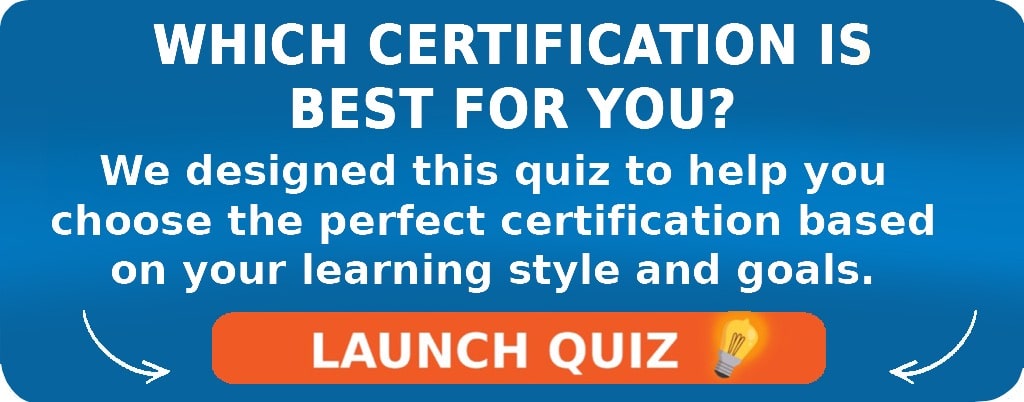

Hey! I am interested in doing the NSCA CSCS certification. I’m getting a little confused between looking at the NSCA site, trainer academy, and your site.
Exactly what materials do I purchase? I was thinking the Trainer Academy MVP package, then the cost of exam, then I need an online CPR cert, then what textbook do I get? Is there anything else I would need?
Thanks!
Hey, all of the materials you mentioned should be perfect for the NSCA CSCS certification, especially since TA will simplify the studying for you. The primary textbook you need will be the current version of the Essentials of Strength Training and Conditioning. This can be found online from many locations, but I suggest getting it directly from the NSCA website.
Hi! I am a PT (got my degree 20 years ago in Europe). Also have a Ph.D in Exercise Science from Ohio State University. I live in Japan and would like to get a strength and conditioning certificate. Can you please advise? I have been trying to find something here in Tokyo but no luck. CSCS sounds great for me but I don’t think I can do it online, right?
Thank you!
Hey Maria, If you can get a physical version of the text wherever you are, you should be able to study for the CSCS exam. They may or may not require you to be present in an in-person testing center, but the NSCA does function internationally.
I have been considering the CSCS certification. I am OT with 20 years experience, treating more patients in the work comp area so more functional type exercises. I would like to expand on this but I am a little torn if the CSCS or perhaps the NASM PES would be the best fit. Your thoughts?
Hey Jason, the CSCS is the gold standard in strength and conditioning certifications. If you are looking for the best, most respected, and most challenging certification, this is the one to go for. If you are wanting a good certification with the NASM PES, it would be good, but it is often accompanied with a NASM CPT certification, as the PES is a specialization certification.
Hi Tyler,
I am 33, an MBA in marketing with 10 years of corporate experience. I have with no academic background in kinesiology or sports training. I just love this field of bodybuilding/training but haven’t really got a push from anyone to pursue this as a career. Although I read and follow exercise routines and strength training a lot, couple of my questions are – should I go ahead with CSCS/NSCA ?
Will my lack of academic experience and age be a hindrance if I want to pursue this as a career ?
I am from India and have a Canadian PR too – Will CSCS/NSCA be valid and helpful in Canada ?
Hey Ritesh, sounds like you have a solid amount of education and experience outside of exercise science studies, but also a good amount of personal interest in the field. I think going with NSCA is a good idea, as they are one of the best in the industry, especially if you desire to pursue strength and conditioning. Your lack of experience won’t hinder you, if anything your level of education will only help. The NSCA CSCS is valid and helpful in the US and Canada, and other countries.
Am masters in sports science
Pes,ces nasm certified
Again cscs Is worth
Hello, thanks for stopping by, and congratulations on all of your certifications.
Hi,
I have two quick questions.
How long is the prep time for CSCS and what is the standard range of preparing?
Another one is that do you recommend to purchase study material on the NSCA website because it is little bit pricy.
It really depends how much studying you have done in the past. I typically recommend people study at least for three months especially if they are just starting out learning the material. A good alternative to the NSCA study materials are those from trainer Academy.
Hey Tyler,
I am currently trying to figure out if getting the CSCS certification is worth it for me. I currently have a bachelors degree in biology and have committed to a Master’s program in Biokinesiology with a Sports Science Emphasis. The certification would likely be used to help get an internship while I am in the Master’s program and something to help bolster my resume (and maybe get a part time job if I can). Although I am uncertain of what job I want in this field, I know I want to work with athletes doing performance enhancement/injury prevention/performance analysis and likely using technology such as force plates, wearable sensor technology, etc. Would you say it is worth the cost of getting this certification (~$600+ with cost of registering for test and purchasing study materials)? Thanks!
I definitely do recommend you get the certified strength and conditioning specialist. It is definitely the most recognized personal training certification in the industry. Especially if you are trying to work with athletes and improving performance, this is the certification to get.
Hey Tyler, I appreciate your dedication to building a site that allows for an efficient route to make these decisions. Here’s my question and I thank you in advance. I am torn between the c.s.c.s. Cert and acsm cpt. I have a b.a. in psychology, but took many credits in kinesiology and nutrition also. Not enough to earn a double major, but I’ve been a student to the strength and power aspects since I was 17. I read on the NSCA website that it will be changing back to requiring a kinesiology degree at the end of the year.
Here’s the problem: I would love to get the c.s.c.s and get grandfathered in before the change takes place. As I say that, it’s important to know I’ve used multiple job hunter sites to find jobs requiring the c.s.c.s. Cert AND at least a bachelor in kinesiology or related field. A huge majority even require a masters in one of those fields. What is your opinion on my employment opportunities. What have you seen personally what employers demand?
Am I setting myself by getting a much more prestigious credential only to not find employment?
Thanks,
Mike K.
Hey Mike,
This is some very important information you have discovered. I did not know that they were switching back to requiring a kinesiology degree. Honestly, I think that’s a good idea. I don’t think anybody with a four-year in business should have any advantage over somebody that does not have a degree. It really depends on what type of client you want to train. If you want to who work with athletes oh, I definitely suggest going with the CSCS. If this is the case, I would definitely take advantage of your psychology degree and get the CSCS now play that you don’t have to go back and get a second degree in kin.
Tyler,
I see there is a new version of the CSCS test, I have been studying for the “old version” for the past month. Do you know how different it will be? I think I can still sign up for the old version today if there is going to be significant changes. Your thoughts? Thanks!
Hey Sean,
the biggest differences in the exam are what percent of questions come from each domain of study. Honestly, it did not change that much and if you have been studying up until this point using this study guide or another one, it should not affect the outcome of the exam. As long as you have an in-depth comprehension of each domain.
How much overlap would you say there is between the CSCS and the NASM’s CES (Corrective Exercise Specialization)?
I am currently employed as a Personal Trainer and Physical Therapy Aide, looking to long term attain a Doctorate in Physical Therapy.
Hey AS,
To me they are pretty different certifications. the CSCS ddoes not talk nearly as much about corrective exercise. It’s great to hear that you are already a personal trainer. Good luck with your doctorate.